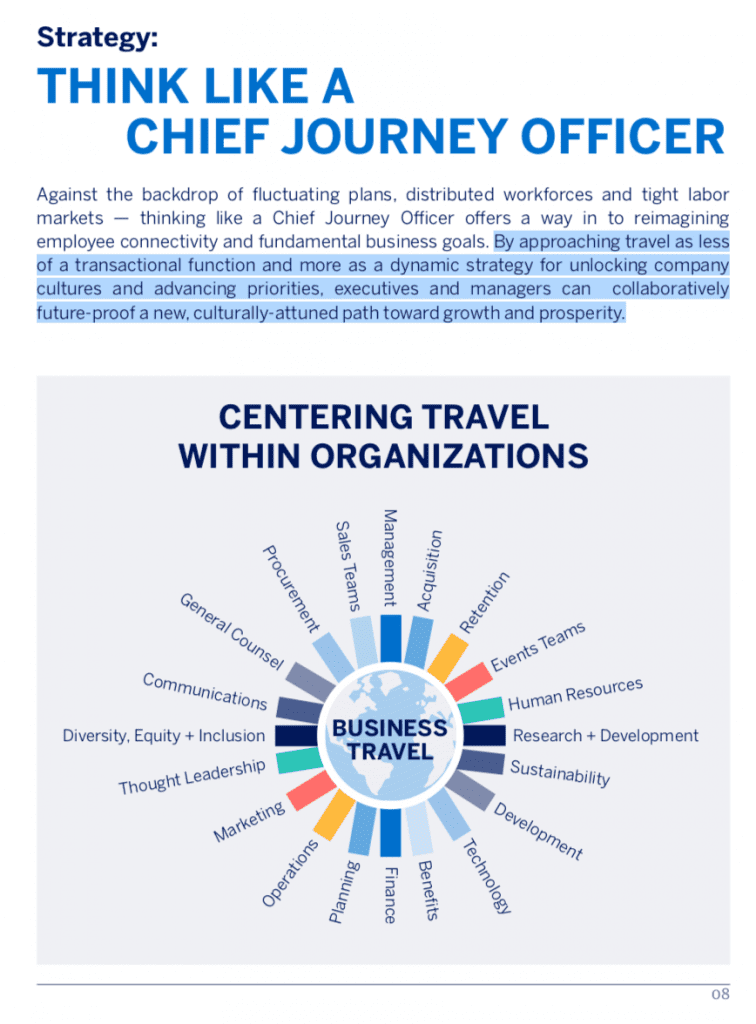Skift Take
This is a smart way to think about this new hybrid world of work: approaching travel as less of a transactional function and more as a strategy for developing company culture. Worth a read.
Even as business travel makes a much faster recovery than anyone had expected, one of the big questions everyone is grappling with is what role does it play in a distributed work world, which is where the future of work is headed.
One thing is for sure: employees and teams inside companies that have not met each other for two years are now traveling in droves to meet each other and that is where a lot of current business travel demand lies. While it is still too early to tell, this new demand for travel may make up for whatever business travel is lost due to the adoption of new technologies for meetings, such as Zoom and others.
To address and put this new blended world of work, business travel, and meetings, into context, American Express Global Business Travel has come out with a white paper titled “Why Business Travel Is the Center of The New Company Culture.” It caught my eye because while jargon-laden, it puts a finger on what a lot of companies — including us at Skift as a now-permanently-remote-company — are navigating their way through.
The premise: how and where we work is changing and traveling to meet internally and externally is now inherently tied to that evolution, and hence the linchpin of how company culture is created and maintained. Centering travel within organizations is the way forward to “reframe business travel from a transactional mechanism to a transformational tool,” as the paper says. Travel teams must take an active, cross-departmental approach, working in conjunction with human resources, data, finance, DE&I, and sustainability.
This chart below illustrates it well, though rebranding of travel manager into the new made-up designation of “Chief Journey Officer” is a buzzword too many for me.
As for creating culture in a hybrid or remote company, the paper proposes making company-wide mobility a solution for that going ahead. As travel becomes a more meaningful touchpoint for in-person collaboration and connecting people to company culture, its role is expanding to include:
- How new hires and prospective employees experience company culture.
- How teams or whole companies align, bond and collaborate at retreats, offsites or all-hands meeting.
- How companies exercise thought leadership at events and conferences.
- How employees sustain and build client relationships.
- How companies showcase their priorities and values to all internal- and external-facing audiences.
Worth a read to think through the possibilities of travel within companies, even if it won’t play out completely this radically for everyone.
Have a confidential tip for Skift? Get in touch
Tags: amex gbt, business travel, corporate travel management

